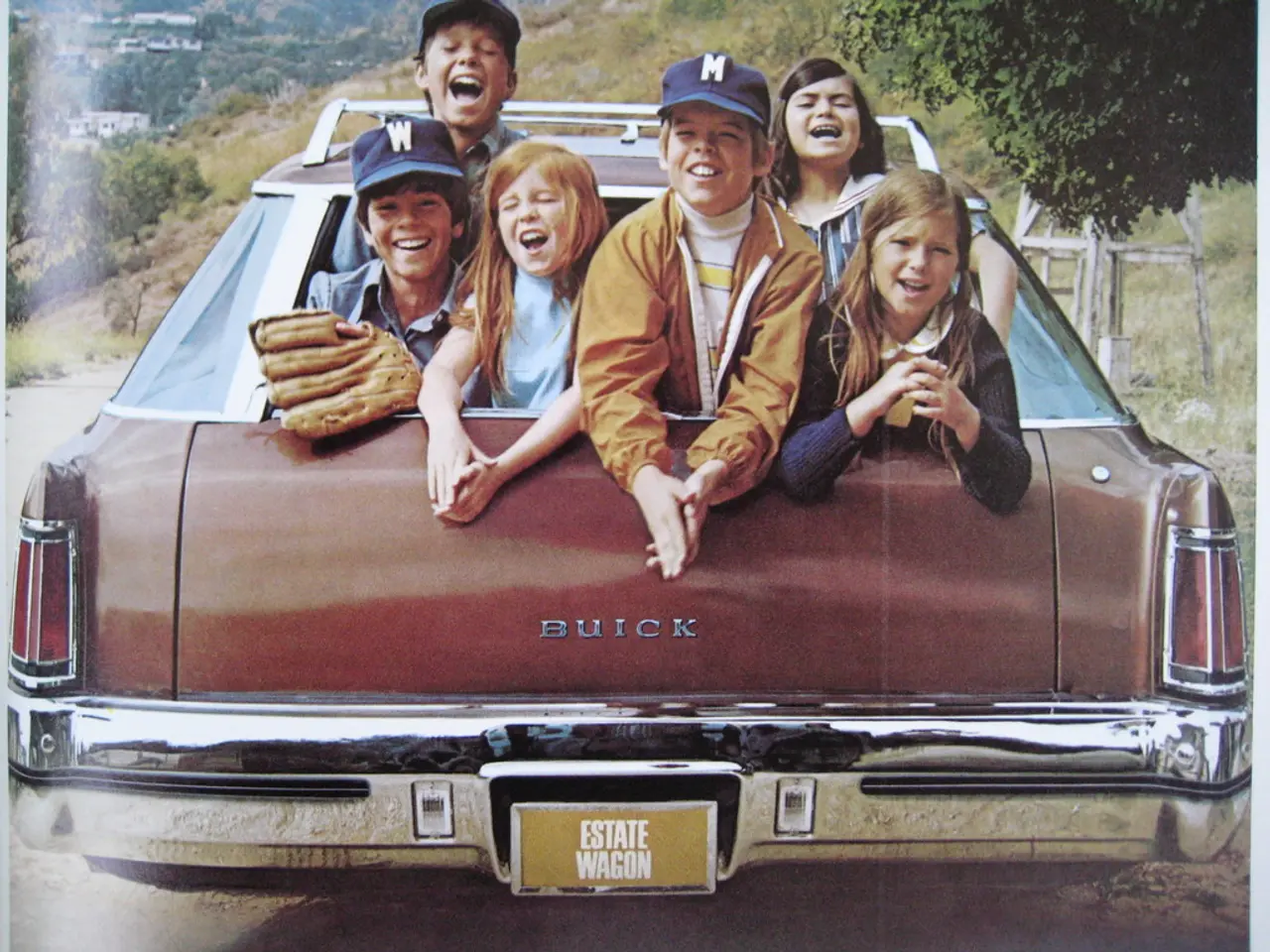Guide for Consoling a Child Involved in a Road Accident
Dealing with the aftermath of a car accident can be a challenging time for everyone involved, especially for children. In the wake of a collision, it's essential to provide reassurance, maintain routines, and offer comfort to help children cope with their emotions.
Children often look to adults in the car to determine their reaction, and a peaceful demeanor can help them feel safe. It's crucial to accept that the collision wasn't one's fault and that feeling guilt is normal, but one is not a worse parent for having gone through this.
In the first few minutes after a crash, being peaceful and present is more important than explaining what happened. Secured baby seats and children's seats can absorb a significant amount of impact, and seatbelts can keep children secure. Short, simple drives can help rebuild a sense of normality after a collision.
Taking steps to create a comforting environment inside the car can help soothe a child after a non-serious road traffic collision. Allowing a child to bring a favorite toy or play music they like can create a comforting environment in the car.
Children may not have the language to fully process the shock of a collision, so their behavior may be unsettled. There's no specific script for what to say to children after a collision; close proximity, a steady voice, and a sense of being held can be reassuring.
Children might exhibit signs of anxiety, clinginess, or difficulty settling down after a collision. It's acceptable for a child to need a few days before being willing to ride in a car again after a collision. Encouraging expression through talking, play, or drawing can help children process their feelings.
Traumatic events like car accidents can cause strong emotional and physical reactions in children, such as difficulty sleeping, nightmares, or changes in behavior. Parents or caregivers should acknowledge these feelings, encourage the child to express them, and provide consistent reassurance that they are safe. Keeping to familiar routines and giving extra attention can help the child feel secure.
If the child shows ongoing distress or symptoms like excessive fear, withdrawal, or physical complaints (headaches, stomach aches), professional help from a pediatrician or counselor may be needed. Early intervention can support healthy emotional recovery and prevent longer-term issues.
In summary, key steps to help a child cope emotionally after a minor car accident include:
- Talking to the child gently about the accident, answering questions honestly but reassuringly.
- Maintaining normal routines to provide stability.
- Encouraging expression through talking, play, or drawing.
- Monitoring for signs of trauma or anxiety.
- Seeking professional help if symptoms persist or worsen.
Empathizing with a child's nervousness during car trips can be helpful. If a child's behavior continues to be affected, consulting a child's doctor is advisable. It's important to offer comfort when needed and keep things steady for the child during this difficult time.
After a car accident, the emotional wellbeing of children is crucial. To help them cope, parents can maintain routines, maintain a peaceful demeanor, and provide comfort, as they might look to adults in the car for reassurance. Additionally, creating a comforting environment in the car, such as allowing a child to bring a favorite toy or play music they like, can help soothe a child following a non-serious road traffic collision.




